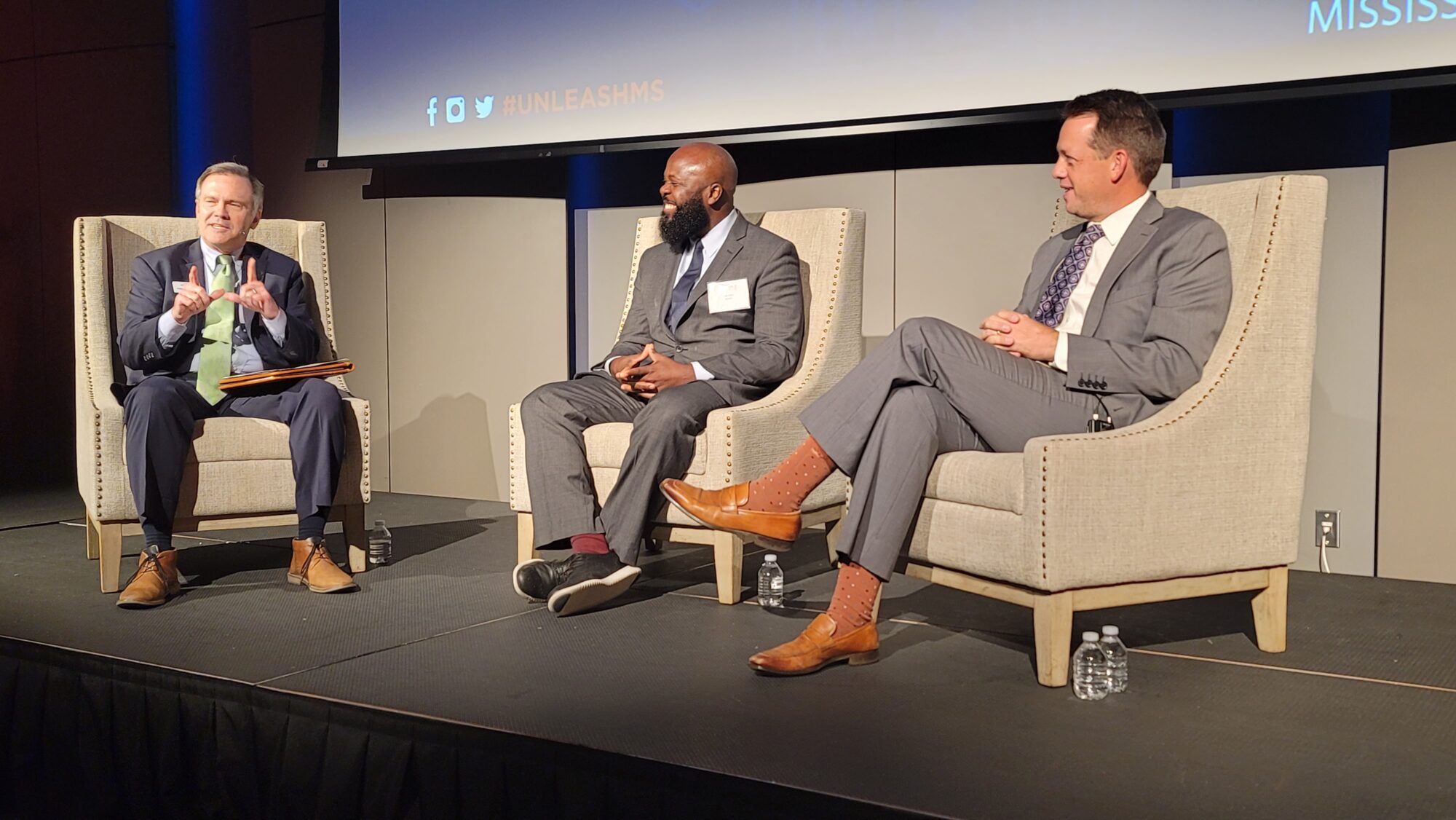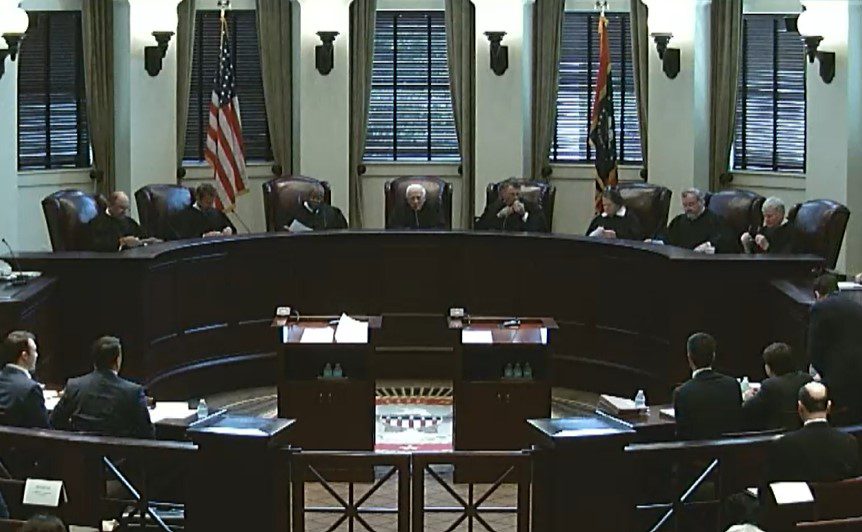
The ruling puts the authority over the Department of Mental Health back in the hands of state officials, and away from federal oversight.
The United States Fifth Circuit Court of Appeals overturned a lower court’s ruling on Wednesday related to the state of Mississippi’s management of mental health care. The decision effectively restores authority to the state’s Department of Mental Health.
In 2011, the U.S. government launched an investigation into Mississippi’s mental health system. The investigation began a back and forth between the U.S. Department of Justice (DOJ) and state mental health officials that culminated in DOJ filing a lawsuit against the state in 2016.
The lawsuit claimed that Mississippi was in violation of Title II of the Americans with Disabilities Act (ADA), which prohibits discrimination against individuals with disabilities and affords “any person alleging discrimination” the right to sue.
A four-week bench trial–one in which the judge sits in place of a jury–was held before District Court Judge Carlton Reeves. Reeves found that Mississippi’s “entire mental health system violated Title II of the ADA because it placed every person with a severe mental illness at risk of unjustified institutionalization.”
Judge Reeves ordered what the Appeals Court called “sweeping modifications” to Mississippi’s system, along with indefinite monitoring of the system by the federal government and the Court, itself. Judge Reeves’ decision, and ensuing disagreement on how to implement it, set up the appeal to the Fifth Circuit.
The Decision
The Fifth Circuit’s reversal of Reeves’ decision was largely based on the fact that the DOJ had not alleged any actual individual case of discrimination. The lawsuit was built on a statistical analysis that argued people were “at risk” of discrimination:
This investigation was not prompted by any individual instance of discrimination against a person with a serious mental illness. It is unclear why the federal government’s investigation was initiated.
U.S. Fifth Circuit Court of Appeals
The Fifth Circuit explained that nothing in the text of Title II “suggests that a risk of institutionalization, without actual institutionalization,constitutes discrimination.”
The possibility that some un-named individual with serious mental illness or all such people in Mississippi could be unjustifiably institutionalized in the future does not give rise to a cognizable claim under Title II. Nor does such a vague and standardless theory license courts under the ADA to rework an entire state’s mental health system. The government did not prove that the state of Mississippi violated Title II pursuant to the statute, regulations, or Olmstead as properly construed. The district court was wrong to hold otherwise.
U.S. Fifth Circuit Court of Appeals
The Fifth Circuit also found that even if the government had proven a discrimination claim, the District Court exceeded its authority in attempting to control how the Department of Mental Health ran from the bench:
The District Court’s sweeping injunction is ‘intrusive and unworkable’ and requires far more than what might have been required to comply with Title II.
U.S. Fifth Circuit Court of Appeals
The Appeals Court offered some criticism of Judge Reeves, saying it was “hubristic” for a District Court to try and predict “risk” of future discrimination, and at one point, saying he cited cases in his decision “for all the wrong propositions.”
The Appeals Court also questioned in footnotes why the investigation was launched in the first place, and whether or not the DOJ had standing to file the lawsuit.
Interested Parties Respond to Decision
The Attorney General’s office handled the case in the Fifth Circuit Court and argued that the District Court ruling be overturned. Attorney General Lynn Fitch cited that it gave the federal government the ability to dictate how the state provides mental healthcare to citizens.
“For too long, federal agencies have used the threat of legal action based on ‘novel theories of liability,’ like those that started this case, to coerce Mississippi and other states into adopting their preferred policies and budget priorities,” said Attorney General Fitch. “This opinion is a good reminder to Washington that the people have the right to speak through their state elected leaders to set their own priorities.”
Stewart Rutledge, Chairman of the Mississippi Department of Mental Health, said the Magnolia State took a risk in standing up to the U.S. Department of Justice and appealing the lower court’s ruling.
“Mississippi chose to fight and we fought for our citizens who desperately need mental health services. Conversely, the US Department of Justice spent the last twenty years bleeding mental health systems nationwide in bare pursuit of a win,” said Rutledge. “Mississippi took a huge risk standing up to this bullying, but with this victory, Mississippi – and the rest of the states – can put their full resources back toward serving our fellow citizens in need.”
Wendy Bailey, Executive Director for the Mississippi Department of Mental Health (DMH) says the Department has focused heavily on the availability of community services for more than a decade. Those services include intensive care within the community and the need for inpatient services at a state hospital.
“We remain strong in our mission and commitment to the people we serve. DMH is inspired by the future and encouraged by the ways we can continue to partner with people, families, organizations and communities for the benefit of the people we serve,” said Bailey. “We are committed to maintaining that progress and supporting a better tomorrow for Mississippians with mental illness, substance use disorders and intellectual or developmental disabilities.”
Bailey indicated that DMH would be sharing FY2023 data in the coming weeks and how those services and others have impacted Mississippians in the last year.
Joy Hogge, Executive Director for Families as Allies, wonders if those receiving care will also come out on the winning side.
Hogge, who was practicing psychology in Texas during the 1980’s and 1990’s, said much of the requirements proposed in the suit were things being implemented in that state during that time. She said when she first heard about the lawsuit, she was optimistic for change. Hogge told Magnolia Tribune she was surprised at the state’s response.
“There are some promising things that have happened as a result of the lawsuit, services that have been added and reporting on what services are effective are good things,” said Hogge.
However, she said individuals directly impacted by mental healthcare services continue to be left out of the conversation.
“The fact that people with mental illness and their families have not been at the table throughout this lawsuit, that is very concerning and would be something I would hope to see changes to,” said Hogge. “The system itself is deciding what will happen, versus it being driven by people honestly saying what the needs are. There has been progress, but I think it is still pretty provider driven.”
Hogge went on to say that there are a lot of people within the mental health system who are providing direct services, attempting to give the best care possible under the guidelines of the lawsuit. Her skepticism remains as to whether DMH will continue the practices they were implementing under the lawsuit that was positive for those receiving care.
“It [mental healthcare] in Mississippi looks good on paper, but in reality, it looks different. I’m just not sure this is going to be any different now,” said Hogge.
Is the Case Over?
The Fifth Circuit opinion was issued by a three-judge panel. The U.S. government has two choices should it wish for further consideration of the suit. It can move to have the case heard by the entire Fifth Circuit, called an en banc hearing, or it can appeal the decision to the U.S. Supreme Court.











